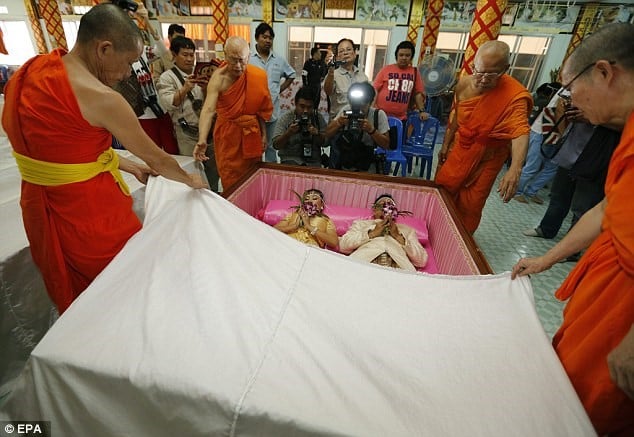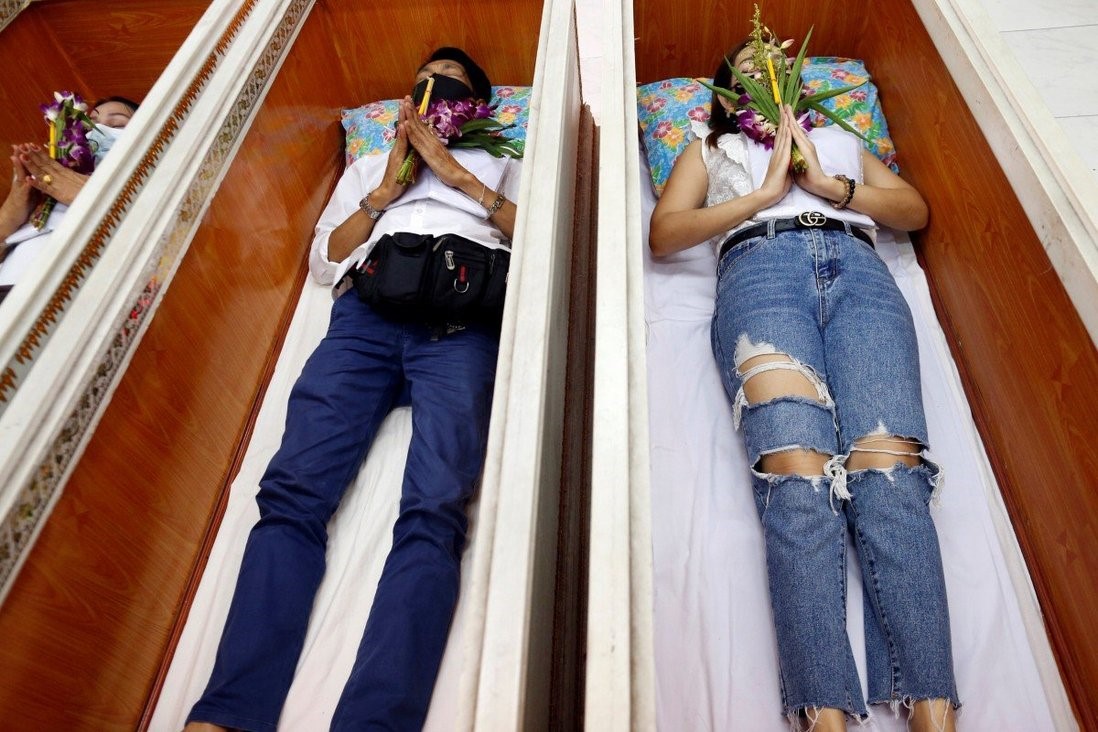People in some Asian countries believe that lying in a coffin or holding a fake funeral for themselves brings good luck and health.
Thai couple lie in coffin praying for “rebirth”. Photo: EPA
Thai people hope for "safety and peace"
Thailand celebrates its traditional New Year and the Thais call it Songkran or the Water Festival. This is a Buddhist New Year and the most important holiday in the Kingdom of Thailand. It is celebrated for 3 days in April, from the 13th to the 15th.
The Bangkokpost reported that some Thai people have the custom of praying for safety in coffins at temples at the beginning of each traditional New Year.
In recent years, many newlyweds in the Land of the Golden Temple have also visited coffins to pray for peace on Makha Bucha Day, the second most important Buddhist festival held on the full moon day of the third lunar month every year.
The coffin wedding ceremony, conducted by monks, is believed to help the newlyweds be “reborn”, while also bringing true love, prosperity and protection from evil.
Young Thai people lie in coffins to pray for peace on the occasion of the New Year. Photo: Reuters
The COVID-19 pandemic that hit early 2020 has made the coffin-laying ritual to pray for bad luck to pass even more important.
Reuters news agency describes the Thai belief of lying in a coffin to pray for peace as a form of fake funeral in the hope of finding good luck or bringing a better new beginning.
“Lying in a coffin reminds people that one day we will die. So we have to live well and cherish our present life,” said Prakru Prapath Waranukij, a monk who performed the ritual.
Korean and Japanese people want to overcome death
Not only the Land of the Golden Pagoda, some other Asian countries such as Korea and Japan also have a trend of holding fake funerals.
In Korea, there are service companies that organize "mass funerals for the living" who want to overcome life's pressures, escape loneliness, sadness, and especially when they feel "close to death" or have suicidal thoughts.
Therefore, not only the elderly but also young men and women seek "living funeral" services.
Each such "funeral" will include several dozen people from all walks of life. Participants will be given shrouds, portraits, will write their own wills, and lie in a closed coffin for about 10 minutes.
"Once you clearly see death and experience it, you will have a new perspective on life," said Cho Jae-hee, 77, who participated in the "living funeral."
PHUC NGUYEN (Synthesis)
Source link


























![[Photo] National Assembly Chairman attends the seminar "Building and operating an international financial center and recommendations for Vietnam"](https://vphoto.vietnam.vn/thumb/1200x675/vietnam/resource/IMAGE/2025/7/28/76393436936e457db31ec84433289f72)












































































Comment (0)